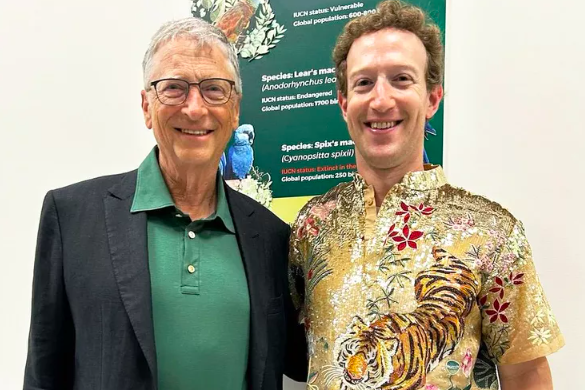3 ways a private-equity firm is tapping content creators for its portfolio of brands, from co-investment to market research

- Sponsorships aren’t the only way influencers can make money working with brands.
- The Newcastle Network, a private-equity firm, is tapping creators as investors for DTC brands.
- Here’s a breakdown of Newcastle’s strategy for bringing on influencers.
It was only a matter of time before creators got involved, with trillions of dollars moving around in private markets.
The majority of content creators make a living on platforms like Instagram, YouTube, and TikTok through paid sponsorships with brands. And Village Marketing’s Vickie Segar is assisting Newcastle Network, a private-equity firm based in Boston, in taking those relationships to the next level. Private-equity (PE) investments are a way to acquire shares or a stake in private companies that are not listed or traded on public financial markets.
Segar, who founded the influencer-marketing firm Village Marketing, which was sold to advertising behemoth WPP in 2022, joined Newcastle Network as a partner in 2021. She’s been developing strategic partnerships with influencers through the private-equity firm since then, such as tapping those influencers for market research on behalf of the firm’s portfolio companies or bringing on creators as investors.
“You shouldn’t just have investors who are finance people sitting at the table making decisions on where to invest millions and millions of dollars,” Segar explained. “You should actually have people who understand consumer products in a different way.”
Here are three ways Newcastle Networks is collaborating with influencers:
- Using creators for market research. “We use them to decide what products we should invest in,” Segar explained. “We’ll give them products, get their feedback, have them post about the product, and then see how it performs.” If a creator’s audience enjoys it — or even if they dislike it — Newcastle and the brands benefit from this information.
- Recruiting influencers as co-investors.Segar believes that having creator co-investors is beneficial. “Typically, when you think of investors, you go to them for advice, their advice, and their money,” Segar explained. “But with creators, their value is all of those things — plus they’re a media entity that you want to participate in the media reach of your business.”
- Recruiting influencers to serve as regular marketing partners for Newcastle’s portfolio companies.Influencer marketing remains central to Segar’s strategy. “Whenever we have a portfolio brand, we bring Village on and then end up helping them with influencer marketing,” Segar explained.
Newcastle has a long-standing relationship with professional athletes-turned-creators Shawn Johnson East and Andrew East, who have 1.5 million YouTube subscribers and millions more followers on Instagram and TikTok.
“There’s a corner of the creator economy that’s very transactional, where it’s, ‘I’ll give you a video in exchange for a check,'” Andrew East explained. “We don’t look at our collaborations in that way.”
Instead, collaborating with brand partners on an equity level is more appealing, according to East, who added that these types of deals are a way to demonstrate to brands that they are committed as long-term partners.
For example, the Easts invested in the shoe brand Kizik, which makes shoes that can be slipped on without being tied.
As diversifying income streams becomes more important in the creator economy, private-equity deals with influencers provide a new source of revenue for creators. While some creators may be interested in venture capital or angel investment deals as a way to get involved in private companies, these PE deals are not the same.
“A typical venture investment is often a minority investment with very little control over the business,” Newcastle managing partner Chris Casgar explained. “In the case of private equity, where we may be investing larger sums, taking more meaningful ownership positions, and in some cases, owning the brands outright, we can make decisions on behalf of the entire company or advise a company in a fairly significant way about the decisions that a company makes.”
Inking a PE deal rather than a VC deal can also mean taking on less risk for creators, according to Casgar, because PE investments are typically made in more mature companies with proven track records.
“The approach to angel investing and venture investing is very different risk profile,” Casgar explained. “The number of companies that start that actually turn into something with real long-term value, that is, cash in your pocket, is very, very small.”






